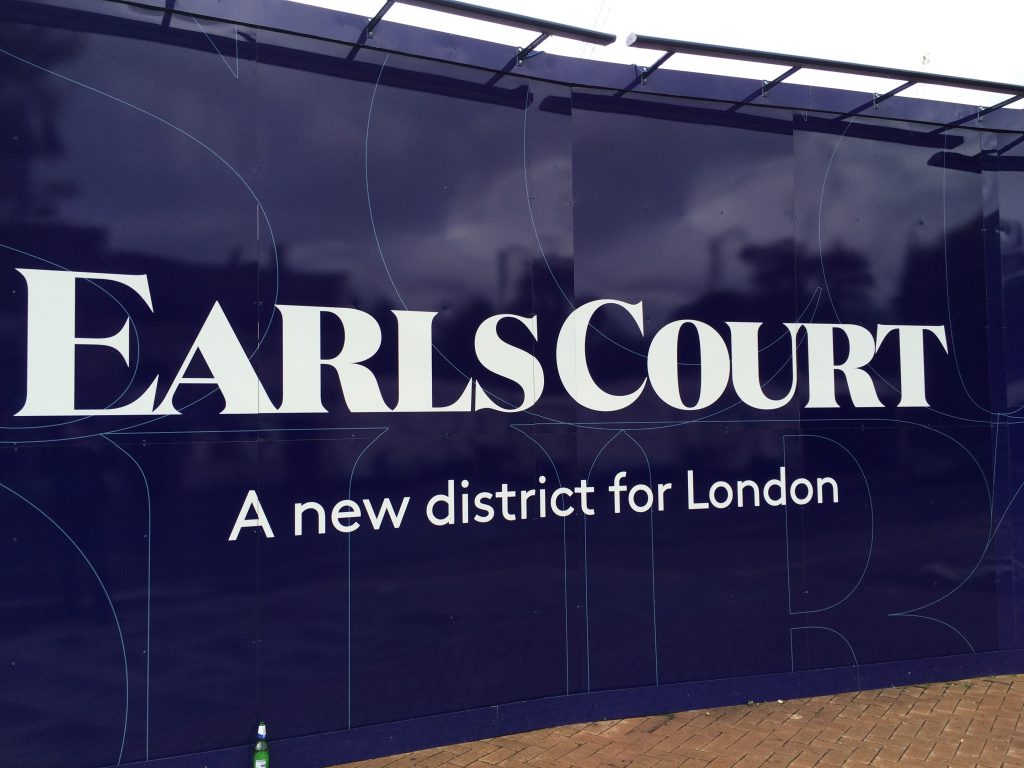Partly because of spotting a quote from it in Curiocity and partly because of seeing both the new Dunkirk movie and the one made in 1958, I’ve blown the dust off my copy of Patrick Hamilton’s famous novel Hangover Square. It is set mostly in London during the forbidding period before war was declared on Germany, and is, as its subtitle tells, us, “a story of darkest Earl’s Court”.
The novel’s central character is a tormented, solitary soul called George Harvey Bone who has a drink problem and falls prey to what he calls “dead moods” in which he thinks of little else but killing an unpleasant actress called Netta with whom he is both besotted and enraged. The pictures painted of London at that time are vivid. Here’s George from a (slightly condensed) passage near the beginning of the novel, arriving unhappily at Liverpool Street station on Boxing Day evening:
Oh dear! – here we were – here was the platform under the huge roof – hollow, hellish echoing noises as in a swimming bath, and the porters lined up for the attack – no getting out of it now! Foreboding gave place almost to panic. Liverpool Street. Where was he going? What was his plan of campaign? He was going along to Netta’s, of course, but would she be there?
It was half past six. Underground? Central London and then change at Notting Hill? Unthinkable! In his present state of suspense he couldn’t bear it. It must be a taxi. That was what the ten pounds was for, wasn’t it? But where to? Straight to Netta’s or back to his hotel first, to leave his bag? Yes, he’d better go to his hotel first. He could have a wash there, and then stroll round to Netta’s, fairly composed and clean.
He walked out of the station, and got a floating taxi outside the Great Eastern Hotel. “I want to go to Earl’s Court. Do you know Fauconberg Square?”
“Yessir.”
“Well, it’s the Fauconberg Hotel – you’ll find it.”
“Yessir. Rightsir!”
The City was mauve, misty, empty, cold. Boxing Day. In less than a minute it seemed they were jogging and rattling past the Bank. They wouldn’t be long at this rate. The lights were going nicely with them too – shining out with brilliant friendliness like bottles in a chemists’s shop.
Now, in warmer weather, here’s George in Leicester Square:
In the thick green of the trees the birds screeched and sun above the subdued thunder of the traffic. In the middle of the square the effigy of Shakespeare stared greyly out in the direction of the Empire Cinema with its bright advertisements of Goodbye, Mr Chips with Robert Donat and Greer Garson. A pigeon had alighted on the head of the poet, who seemed to be watching the red coat of the man who cleaned shoes on top of the men’s lavatories. Fine, fine, fine. Blue and sunshine everywhere…you couldn’t believe it would ever break, that the bombs had to fall.
Lastly, a morning of fresh resolve:
He walked after breakfast along the Earl’s Court Road in the rain, and was astounded by his initiative and audacity. It was all over now; he had taken the final step and given notice. He couldn’t back out of it now, he was through; through with Earl’s Court, through with Netta, through with it all. Earl’s Court in the rain. The summer had crashed. It had crashed at Brighton: it would never rise again. Only rain now – the grey wet end of hope and love.
Where was he going? He had a week to decide. Where? Anywhere, Notting Hill, Bayswater, South Ken, Shepherd’s Bush, Knightsbridge, but never again Earl’s Court. Goodbye to the Squares, the Gardens, the Mansions; the Penywerns and the Neverns; the private hotels; the Smith’s, the station, the Turkish Baths; the ABC and Express restaurants; the pubs, the florists and tobacconists, all the bleak scenery of his long disgrace and disaster – goodbye, for ever. The grey, ending rain was cool and blessed on his face.
The “Penywerns and Neverns” – a road and a very handsome square – are still there, but no longer associated with a seamy demimonde of actors and drinkers that prevailed in different forms for some decades after the war in an area now in the stalled throes of an unsympathetic redevelopment (see photo). Fauconberg Square? I can find no trace of that, only a Fauconberg Road in Chiswick. But the statute of Shakespeare in Leicester Square was restored in 2012 as part of the Square’s renovation. You can buy Patrick Hamilton’s Hangover Square here.

